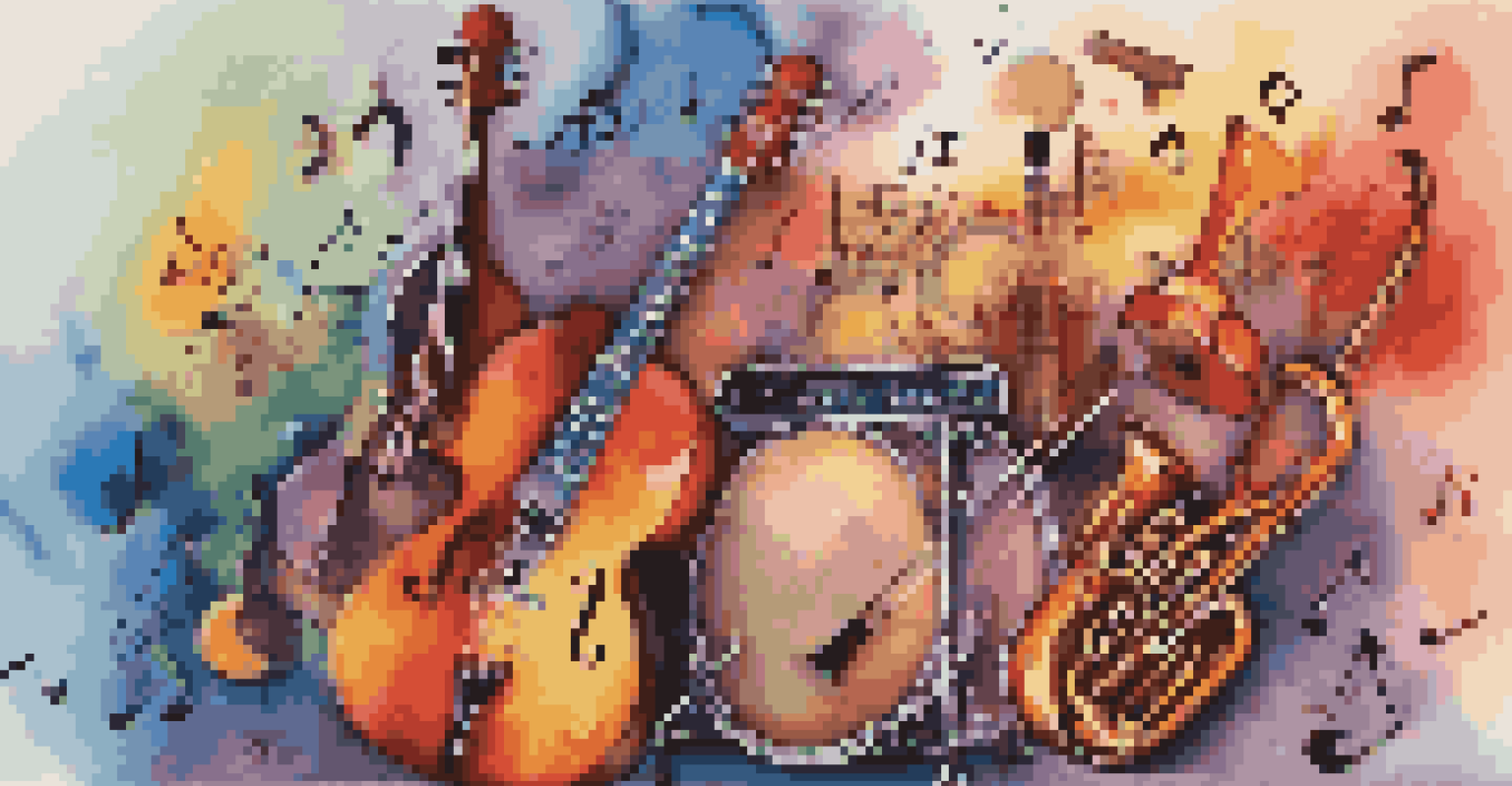Exploring the Ethics of Music-Based AI Tools for Creators

Understanding Music-Based AI Tools and Their Uses
Music-based AI tools have surged in popularity, offering creators new ways to compose, produce, and enhance their work. These tools range from AI-driven composition software to applications that help with mixing and mastering tracks. For many artists, these technologies represent an exciting frontier in music creation, bridging creativity and innovation. However, with this rise comes a need to understand the ethical implications of using AI in the creative process.
AI is a tool. The choice about how it’s used is yours.
As these tools become more integrated into the music industry, it’s important to consider who owns the music created by AI. If an artist uses an AI tool to generate a melody or lyrics, questions arise about intellectual property rights. Is the creator of the AI the true author, or does credit go to the person who used the tool? These questions challenge traditional notions of authorship and ownership in music.
Furthermore, the use of AI in music can also raise concerns about the authenticity of artistic expression. Many creators fear that relying too heavily on AI might dilute their unique voice and vision. Balancing the advantages of AI tools with the desire for genuine creativity is a challenge that many musicians will need to navigate as technology evolves.
The Impact of AI on Creative Ownership and Copyright
Copyright laws were designed to protect original works, but they struggle to keep pace with the rapid evolution of AI technologies. When AI tools generate music or lyrics, determining ownership becomes murky. Who gets credit if an AI tool creates a hit song? The artist who provided the input, the company that developed the AI, or the AI itself? This ambiguity can lead to disputes and could set dangerous precedents for future creators.

Moreover, the potential for AI-generated content to infringe on existing copyrights adds another layer of complexity. AI tools can analyze vast libraries of music and synthesize new compositions, but if they inadvertently mimic existing works, it raises ethical questions about plagiarism. Creators must be vigilant to ensure that their work, and the work of others, is respected and protected in the age of AI.
AI Raises Ownership Questions
The integration of AI in music creation blurs the lines of authorship and intellectual property rights.
As the landscape of music creation evolves, discussions around copyright and ownership must include diverse voices from the music community. Collaborating with legal experts, musicians, and technologists can help shape policies that support innovation while protecting creators' rights. Ensuring that everyone benefits from AI in music will require ongoing dialogue and adaptation to new realities.
The Role of AI in Creative Collaboration
AI tools have the potential to foster collaboration among musicians, producers, and songwriters. By offering new ideas, melodies, or even lyrics, AI can serve as a creative partner rather than a replacement for human artists. For instance, a songwriter might use an AI tool to generate a range of chord progressions, allowing them to explore new musical ideas without feeling overwhelmed by the blank page.
The future is already here — it's just not very evenly distributed.
However, the dynamics of collaboration change when AI is involved. The line between human creativity and machine assistance can become blurred, leading to questions about the true nature of collaboration. If an AI tool suggests a catchy hook that becomes the centerpiece of a song, who should receive credit? These questions highlight the importance of transparency in the creative process.
To navigate these complexities, creators should establish clear agreements about the role of AI in their collaborative efforts. Setting boundaries and expectations can help maintain the integrity of the creative process while embracing the benefits that AI tools can offer. Ultimately, AI should enhance human creativity, not overshadow it.
Ethical Considerations of AI in Music Production
The introduction of AI into music production brings ethical considerations that can’t be ignored. While these tools can streamline processes and improve efficiency, they may also lead to a homogenization of sound. If everyone uses the same AI tools, will music become less diverse? Creators must be aware of how these technologies can influence their unique artistic voices.
Additionally, the reliance on AI in music production raises concerns about job displacement. As AI tools become increasingly capable, the roles of producers and sound engineers may evolve or even diminish. This shift could have a significant impact on the industry, leading to a re-evaluation of skill sets and career paths within music production.
Ethics in AI Music Production
Using AI in music production introduces ethical concerns about authenticity, job displacement, and cultural representation.
It’s crucial for creators to engage in discussions about the ethical implications of using AI tools. By fostering an awareness of these issues, musicians can make informed choices about how to incorporate AI into their workflows. Emphasizing ethical practices ensures that the music industry remains vibrant and inclusive, celebrating the human element of creativity.
AI and the Future of Music Genres
As AI tools continue to evolve, they have the potential to influence the development of new music genres. By analyzing vast datasets of existing music, AI can identify trends and patterns that may inspire entirely new styles. Imagine an AI that blends traditional folk music with modern electronic beats, creating a genre that resonates with diverse audiences. This blending of influences can lead to exciting innovations in sound.
However, the creation of new genres through AI also raises questions about authenticity and cultural appropriation. When an AI generates music based on cultural styles, it’s essential to consider who has the right to represent those influences. For creators, understanding the cultural significance of the music they draw from is vital to ensure respect and appreciation for diverse traditions.
Ultimately, the future of music genres will depend on the collaboration between human artists and AI technologies. While AI can provide inspiration and new ideas, it’s the human touch that will ultimately shape how these genres are defined and received. Creators must remain mindful of their role in this evolving landscape, balancing innovation with respect for musical heritage.
Ethical Guidelines for Using AI in Music Creation
As the use of AI in music becomes more common, establishing ethical guidelines is essential for creators. These guidelines can help navigate the complex landscape of ownership, collaboration, and cultural representation. For example, creators should always disclose when AI has been used in their music, fostering transparency and trust with their audience.
Additionally, ethical guidelines can provide a framework for ensuring that AI tools are used responsibly. This includes respecting copyright laws, giving credit where it’s due, and being mindful of cultural influences. By adhering to these principles, musicians can contribute to a more equitable music industry that values both human and machine contributions.
Collaboration with AI Tools
AI can enhance creative collaboration among artists, but it necessitates clear agreements to maintain artistic integrity.
Creating a community around these guidelines can also encourage collaboration among artists, technologists, and ethicists. By sharing experiences and best practices, creators can collectively shape a future where AI enhances music without compromising its integrity. Engaging in these conversations is vital for building a sustainable and ethical music ecosystem.
Conclusion: Balancing Innovation with Ethical Responsibility
In conclusion, the rise of music-based AI tools presents both exciting opportunities and ethical challenges for creators. As artists explore innovative ways to incorporate AI into their work, they must also grapple with questions of ownership, authenticity, and cultural respect. Striking a balance between leveraging technology and maintaining ethical standards will be crucial for the future of music.
The ongoing conversation about the ethics of AI in music should involve diverse perspectives from across the industry. By fostering collaboration and dialogue, creators can better understand the implications of their choices and work towards a more inclusive music landscape. This engagement will not only enhance artistic expression but also ensure that the values of creativity and respect remain at the forefront.

Ultimately, as we embrace the potential of AI in music, it’s vital to remember that technology should serve as an ally, not a replacement. By approaching AI with awareness and ethical responsibility, musicians can harness its power to create meaningful, innovative work that resonates with audiences for years to come.